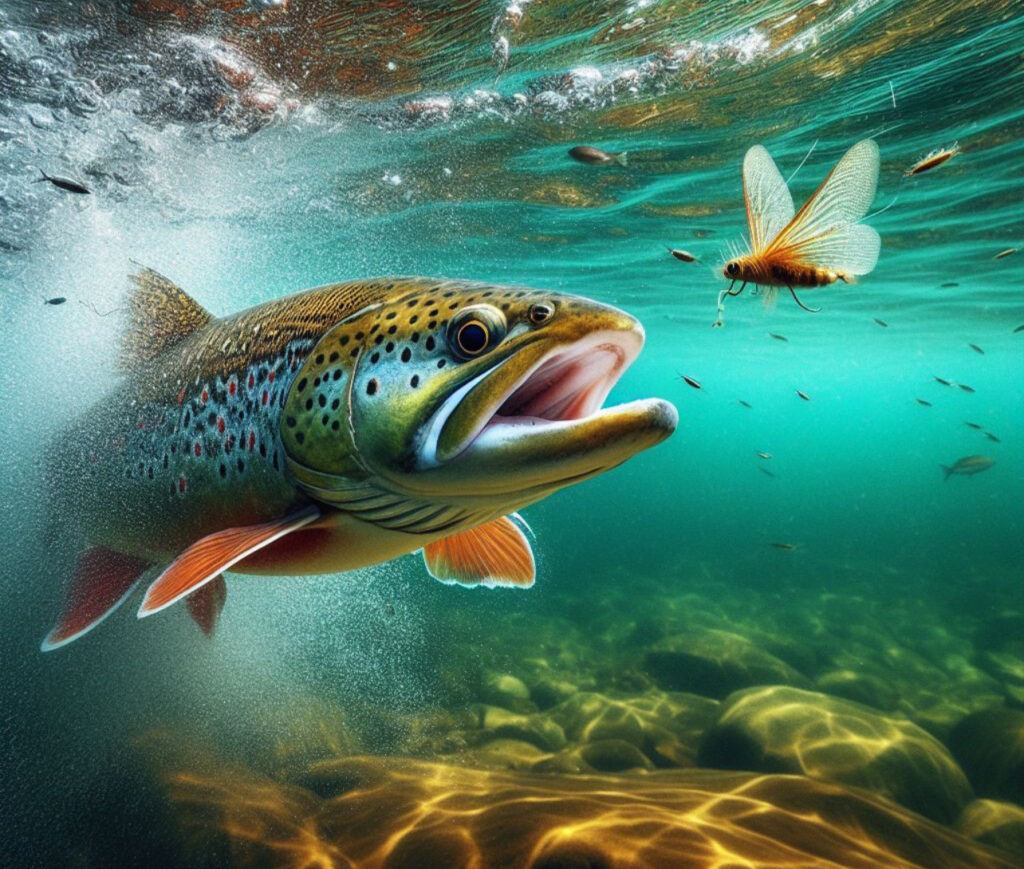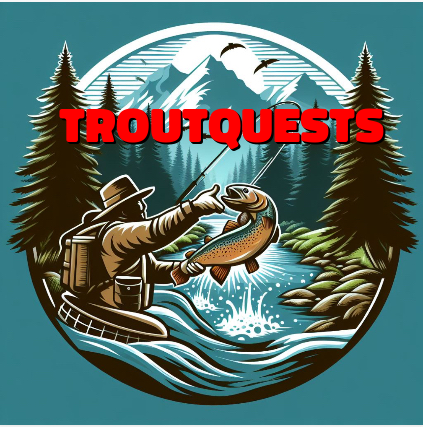
In 1913, someone had a great idea: “Let’s get some brown trout from Germany and bring them to Ontario!” And you know what? It worked! These fish made themselves right at home and settled in like they owned the place. They’ve become true Ontarians and have naturalized into their new surroundings. But hold up there, fishing enthusiasts! You won’t find brown trout everywhere in Ontario. They swim around in some of the Great Lakes in Ontario, where they’re known for being pretty sneaky. Interestingly, they like to hang out in many of the rivers and streams in southern Ontario.
Imagine a beautiful creature with sleek fins effortlessly gliding through the water – that’s the brown trout for you! Scientifically, they belong to the salmonid family, and their native habitat spans across Europe, West Asia, and fragments of North Africa.
Humans played an instrumental role in introducing brown trout to various parts of the world, including North and South America, Australia, and surrounding islands. However, their widespread introduction has caused unintended consequences, as they have become invasive species outside their native habitat.
Moving forward, it is essential to manage their populations and develop responsible strategies that balance their introduction while preserving the ecosystem’s balance.
Let’s explore the fantastic world of brown trout. Did you know these trout, like an ice cream shop, come in various flavours?
There’s the “river trout” type, who migrate upstream like the cool kids during their love season.
Then there’s the “lacustrine” bunch, who prefer the tranquil lakeside.
But some brown trout, loving rivers and lakes, can’t decide and have a split personality.
Scientists are still unravelling the mystery of why some migrate to the sea while others remain in one place. Let’s appreciate and protect these incredible creatures for future generations to enjoy. The brown trout’s astonishing journey from Germany to Ontario, their sneaky invasions, and freshwater escapades inspire us to cherish and preserve our natural world.
